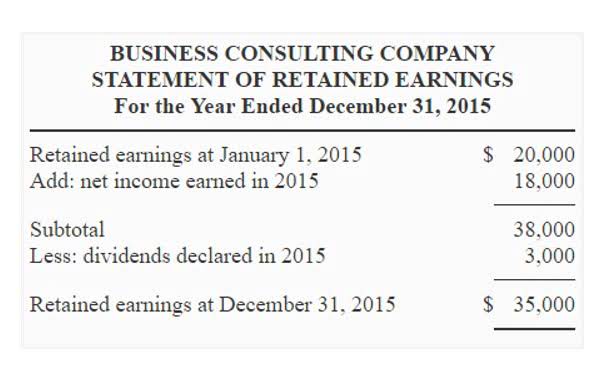
This ensures that the company’s financial statements accurately reflect its true financial position, even if it has not yet received payment for all of the services it has provided. Much like with accruals, deferrals will almost always be recorded using the journal entry accounting method. Accrued revenue is a payment owed to a company for a product or service that is recognized on an income statement but has not yet been received. Accrual accounting focuses on recognizing revenue and expenses when they are earned or incurred, regardless of cash movements.

Do I Put Unearned Service Revenue Under Revenue In An Income Statement?
On the other hand, deferral accounting takes a more conservative approach by postponing the recognition of certain revenues or expenses until they are realized. This method can help smooth out fluctuations in financial statements and provide a clearer understanding of actual cash flow. Deferral accounting is commonly used by businesses that rely heavily on subscription-based services or prepaid contracts.

Reading vs. Literacy: Key Differences in Skill Development
- Accrual accounting is often favored by businesses that want to accurately reflect their financial position in real-time.
- Certain accounting concepts are generally used in any company’s revenue and expense recognition principle.
- According to Investopedia, deferred revenue is the same as unearned revenue, where the money is received for a service or product that has not yet been provided.
- Revenue is recognized in the income statement before it is received in an accrual system.
- Understanding how accrual and deferral transactions work in practical scenarios can illuminate their impact on financial reporting.
Accruals for revenue involve recognizing revenue before it’s received in cash, based on the principle of when it’s earned. At the end of the project, the liability should reflect zero balance and the revenue account should reflect the full income. Again, a business must carefully practice unearned or deferred income practices.

Introduction to Accrual and Deferral Accounting
When the University is the provider https://gobidental.com/2021/08/31/church-bookkeeping-financial-support-for-small-and/ of the service, we recognize a liability entitled Deferred Revenue. Then, in the subsequent fiscal year, we relieve the liability and recognize the revenue as the services are provided. Accruals for expenses involve recognizing and recording expenses in the accounting period that they relate to, even if the payment is not yet made. This ensures that your financial statements reflect all relevant expenses, providing a clearer picture of your company’s financial health. The importance of the matching principle can’t be overstated in accrual accounting.
Exploring Deferral Accounting
For example, if a company receives payment in advance for services to be provided in the future, the revenue is deferred until those services are performed. Accrual accounting provides a more accurate representation of a company’s financial position by matching revenues with expenses in the same period, offering a clearer picture of profitability. Accrual accounting recognizes revenue and expenses when they are earned or incurred, regardless of when cash actually changes Online Accounting hands. On the other hand, deferral accounting involves postponing the recognition of revenue or expenses until a later accounting period. This distinction impacts how financial statements are prepared and provides insights into a company’s financial performance.
- This insight highlights the strategic use of deferral accounting in dynamic financial environments.
- The main difference between accrual and deferral accounting lies in the timing of recognizing revenues and expenses.
- This helps you clearly view all current assets and liabilities, avoiding inflated profits or understated debt.
- Determining the best approach for your business when it comes to accrual vs deferral accounting can be a critical decision.
- Each method has distinct principles and implications for how financial performance is measured and communicated.

They can guide you through the process, provide expertise on applicable regulations, and help streamline your transition to these accounting methods. Accurate record-keeping is essential for accrual or deferral implementation as it allows for easy identification and allocation of revenues and expenses over time. Accrual and deferral are two fundamental concepts in accounting that play a crucial role in ensuring accurate financial reporting. Deferrals are adjusting entries that delay the recognition of financial transactions and push them back to a future period. A Deferral refers to revenue that was received before delivery of the product or service to the customer, as well as expenses paid in advance.

- Notice that the ending balance in the asset Accounts Receivable is now $7,600—the correct amount that the company has a right to receive.
- Under the accrual basis of accounting, revenues are recorded at the time of delivering the service or the merchandise, even if cash is not received at the time of delivery.
- Accrual accounting’s emphasis on recognizing revenue when earned and expenses when incurred allows for a more nuanced budgeting process.
- Taking the time to properly recognize revenue and expenses will ultimately help you make more informed decisions for your business.
Likewise, you’ll often categorize employee salaries and wages as current liabilities and document them as accrued expenses on your balance sheet. Investors and other stakeholders can better evaluate a company’s financial health and compare performance to competitors by employing these approaches and adhering to GAAP. Accrual and deferral procedures are vital because they keep revenues and costs in sync. Accounting for accrual and deferral plays a vital role in appropriately matching revenue and costs. When the bill is paid, the accrual vs deferral entry is modified by deducting $10,000 from cash and crediting $10,000 from accounts receivable. Revenue accrual happens when you sell your product for $10,000 in one accounting period but only get paid for it before the end of the period.
